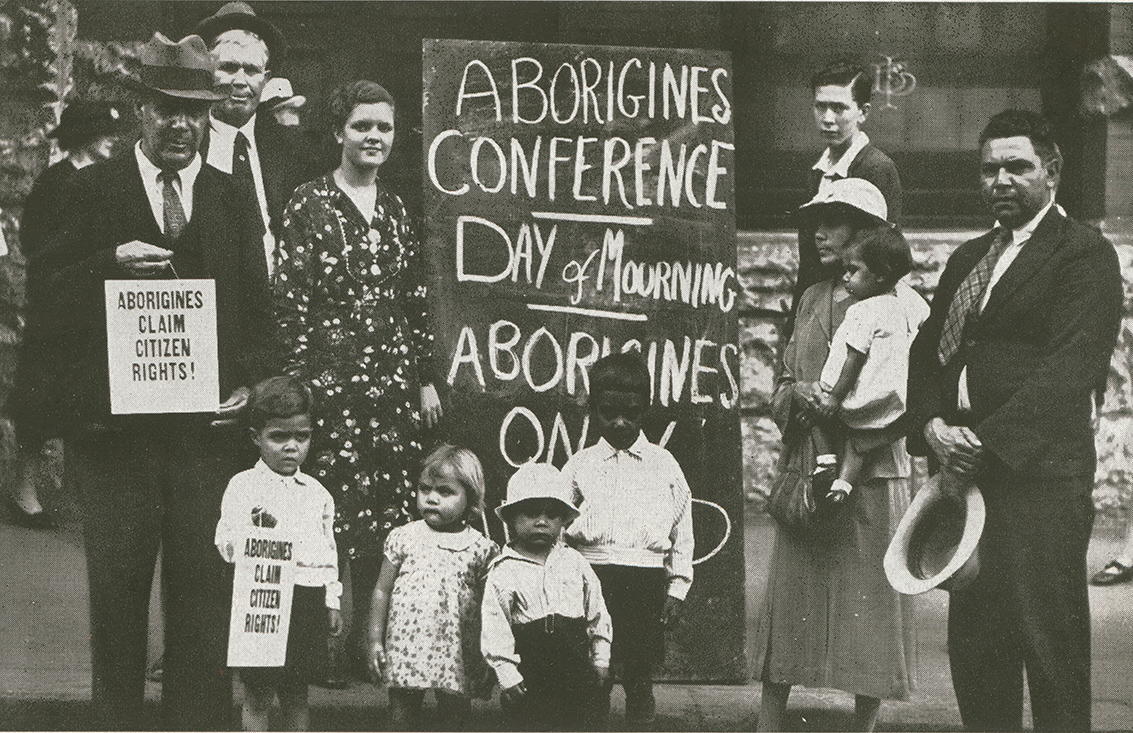We have used historical terms; however, ‘Aborigine’* is no longer used or accepted when referring to Aboriginal or Torres Strait Islander peoples.
The NSW Aboriginal Progressive Association (APA) and the Australian Aboriginal League (AAL) organised the Day of Mourning civil rights protest in Sydney on 26 January 1938, the 150th anniversary of the arrival of Europeans. More than 1,000 Aboriginal people and their supporters took part in the silent protest march.
On the same day, the APA held a congress meeting that moved the following resolution:
“We, representing the Aborigines* of Australia, assembled in conference at the Australian Hall, Sydney, on the 26th day of January, 1938, this being the 150th Anniversary of the Whiteman’s seizure of our country, hereby make protest against the callous treatment of our people by the white men during the past 150 years, and we appeal to the Australian nation of today to make new laws for the education and care of Aborigines*, we ask for a new policy which will raise our people to full citizen status and equality within the community.”
This was the first mass civil rights protest for Aboriginal rights in Australia. It called for the abolition of the NSW Aborigines Protection Board*, the repeal of all existing legislation so that Aboriginal people would have full citizen rights and Aboriginal representation in Parliament. In the mid-1930s, the Australian Aborigines’ League* had circulated a petition in support of this campaign, which was rejected by then Prime Minister Joseph Lyons.

Title: Aborigine*s Day of Mourning
File Title: 2. A Blackboard displayed outside the hall proclaims, "Day of Mourning", 26 January 1938
Source: Mitchell Library, State Library of NSW [Q 059/9]
